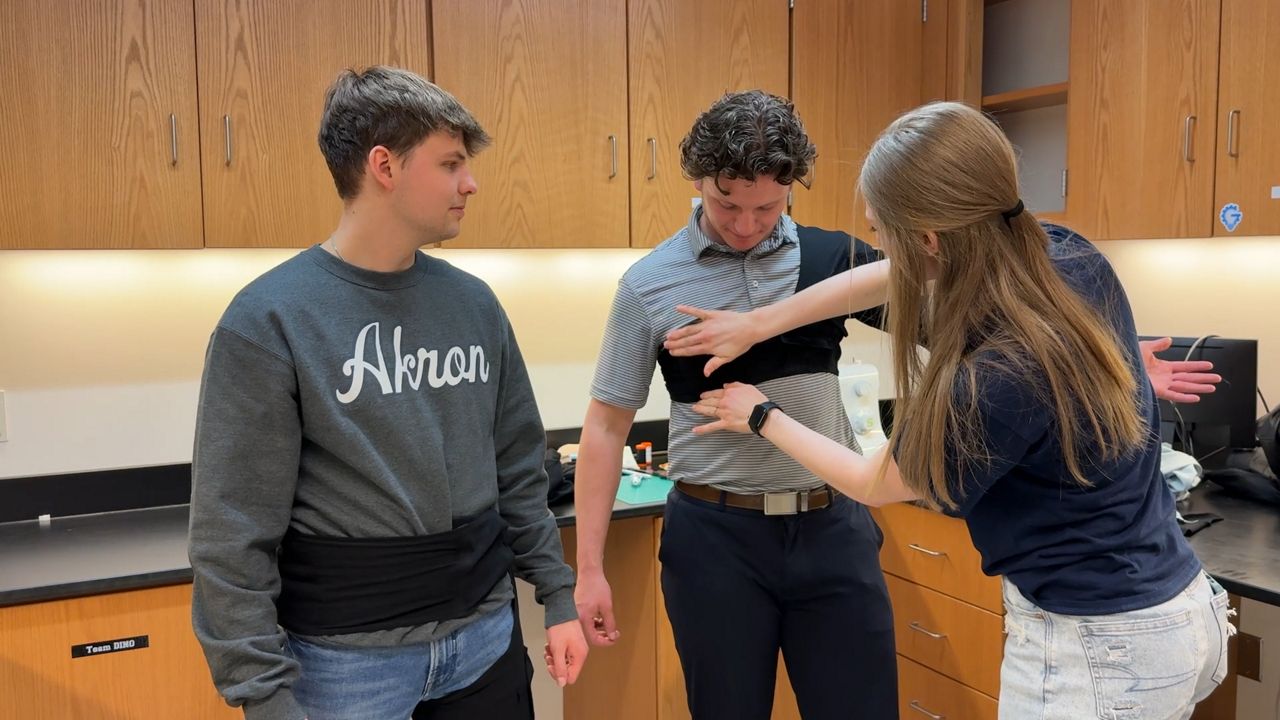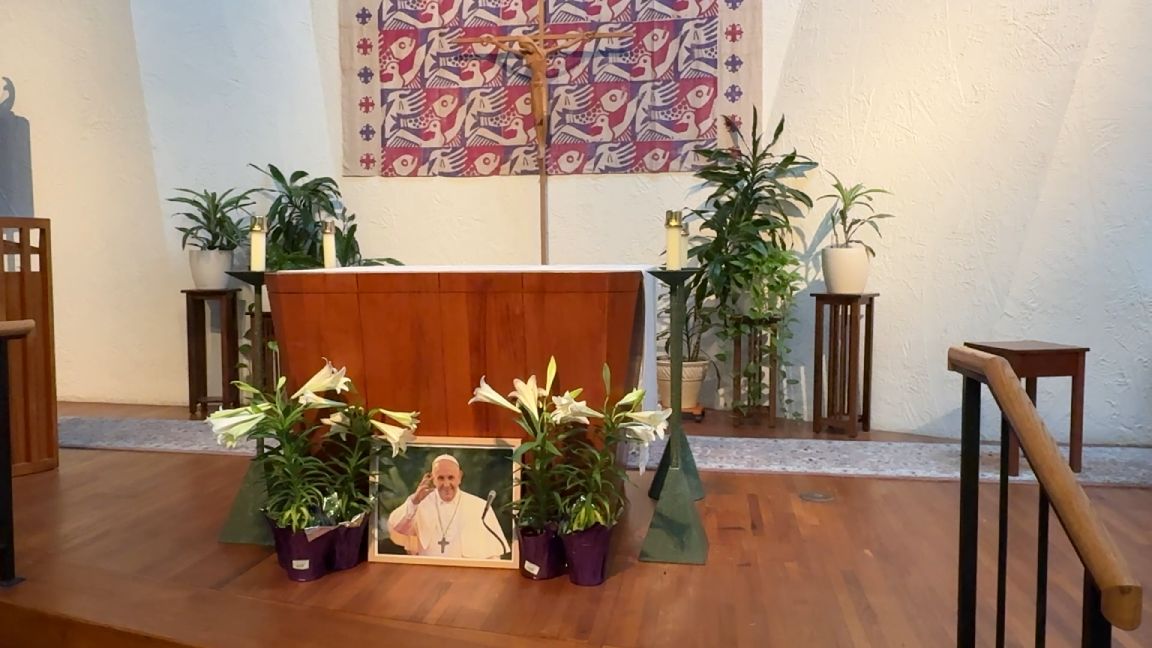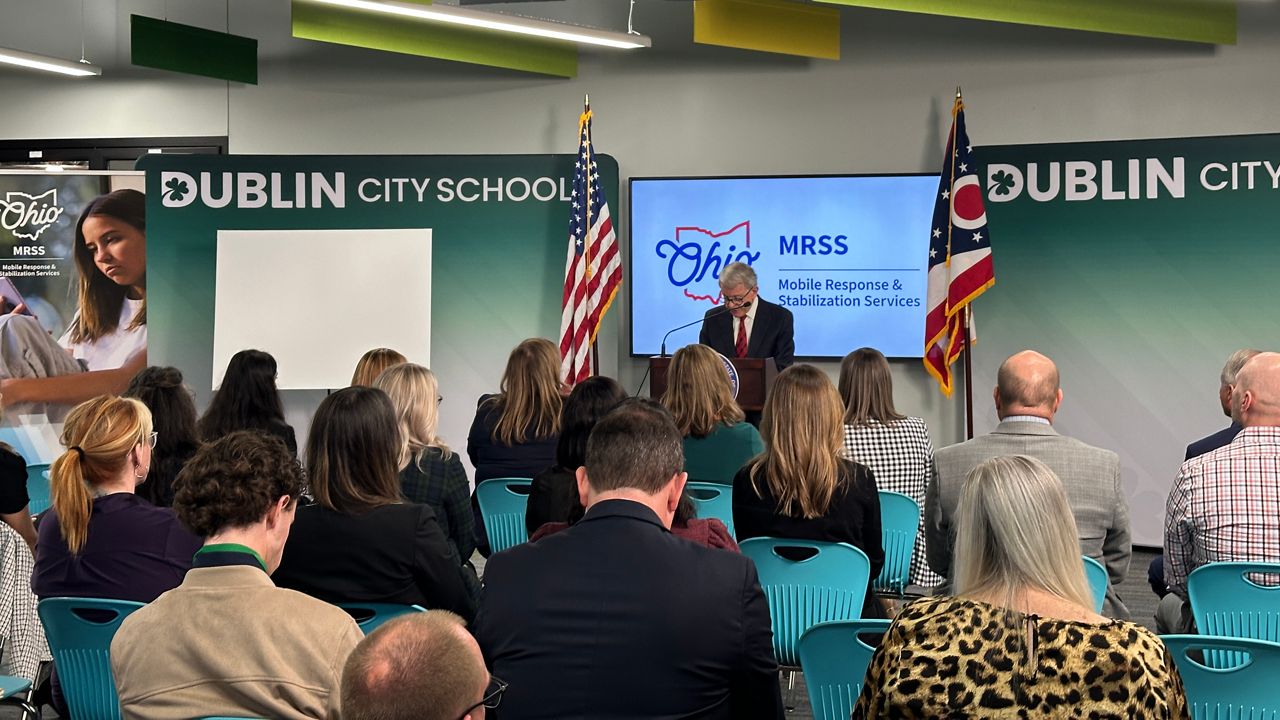COLUMBUS — According to the American Medical Association (AMA), 30 million people in the United States have sleep apnea.
However, AMA reported only about 6 million people are ever diagnosed.
If left untreated, sleep apnea can lead to an increased risk of stroke, heart attack, dementia and many other conditions.
Doctors said many people have misconceptions about treatment and don’t know how many options are available.
Thanks to treatment, two friends said they're both getting a better night's sleep.
Between grandkids, golf and Euchre, Dick Murray and Ed Schoonmaker have a lot to keep them busy.
Both are 82-years young.
They’ve been friends for 40 years and live next door to one another.
They have a lot in common, but they also shared something a little less obvious — trouble sleeping.
“I had some tiredness and my energy level was really low,” said Murray.
“My wife would say, ‘You’re not breathing at night and you’re snoring and I have to punch you and everything,'" said Schoonmaker.
They both said their sleep study results were alarming.
“I had stopped breathing, for anywhere from 8 to 13 seconds, 34 times an hour each night,” Murray said.
Like his friend, Schoonmaker also had sleep apnea, but neither could get rest with a CPAP machine.
“It was miserable. It kept my wife awake; it kept me awake. I wasn’t getting good sleep,” said Murray.
“I’m a belly sleeper and the mask would be coming off, problem with the hose; when you travel that was a big hassle,” added Schoonmaker.
By 2021 and 2022, both men decided to see sleep medicine specialist Dr. Asim Roy.
“One of our goals is, we try to educate people. We can diagnose this at home. They don’t have to spend the night in the sleep lab then; also there’s many, many options to treat sleep apnea,” said Roy.
One of those options is a nerve-stimulating treatment called Inspire Sleep.
“Basically, it’s a pacemaker. It’s a battery that gets implanted in your chest and a wire that goes up to the nerve that controls your tongue,” Roy said.
Via the pulse of the tongue, airways can stay open.
Murray got the surgery before Schoonmaker.
“It’s been a life-saver and really it has changed my life. I have Medicare insurance and the only payments were the copays,” Murray said.
He’s now a patient ambassador and even when Schoonmaker’s wife fell and broke her shoulder just days before his surgery, Murray was there for his friend.
“He took me to all the doctor meetings and the surgery and everything,” Schoonmaker said.
Recently Inspire Sleep has gotten the green light from major insurance companies, Medicare and the VA.
To qualify for the treatment, patients must be over 18, be diagnosed with moderate to severe obstructive sleep apnea, have struggles with CPAP and meet certain weight criteria. Just like any other surgery, there could be complications like infections, pain and swelling. Some patients reported temporary tongue weakness following the procedure.
“It’s important to understand that access to care is much easier than it’s ever been and the technology is just getting better and better,” said Roy.
As for Murray and Schoonmaker, the treatment has been a lifesaver.
“I lost 32 pounds after I got the Inspire. Some of it was diet, but most of it was because I had a lot of energy and could do things I couldn’t do before,” Murray said.
“I’ve lost 25 pounds; I’m back to where I was,” said Schoonmaker.
Murray’s sleep breathing interruptions are now down to four to five times an hour and Schoonmaker just played golf in the Senior Olympics.










